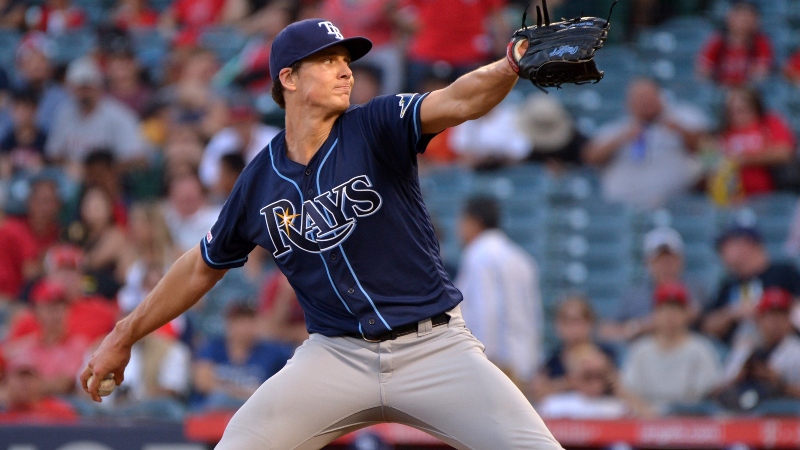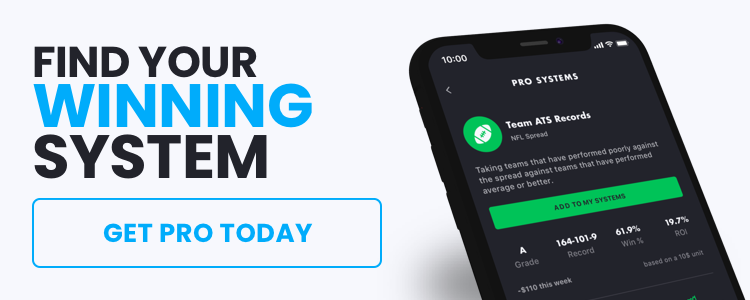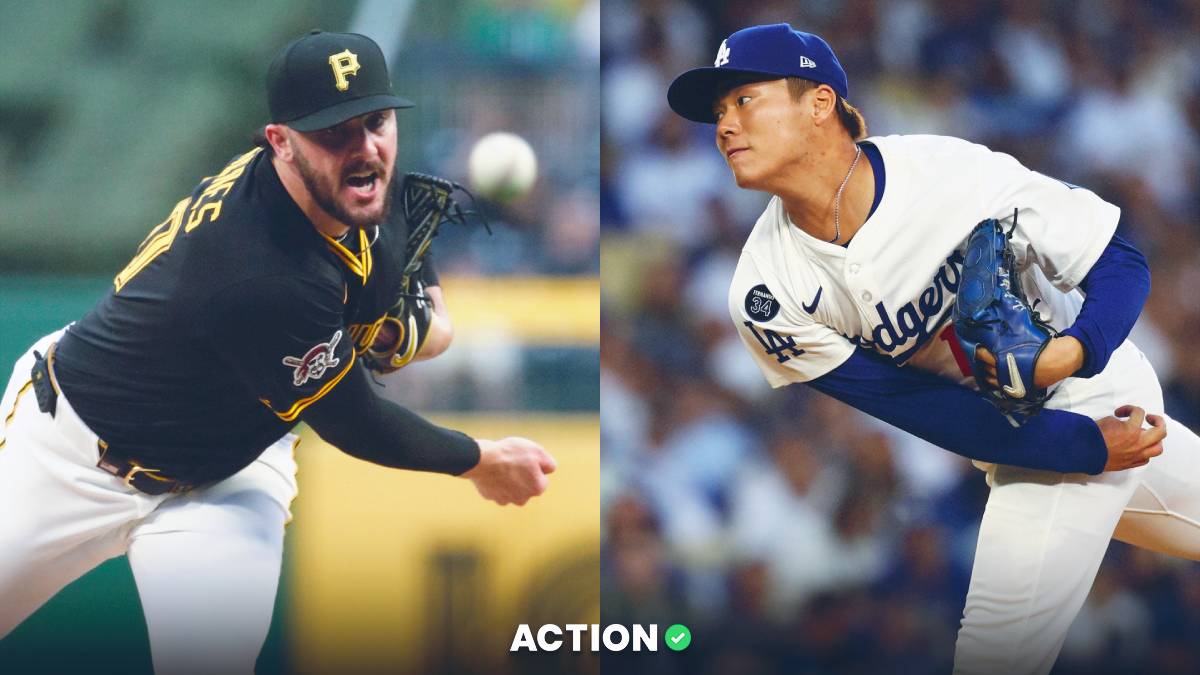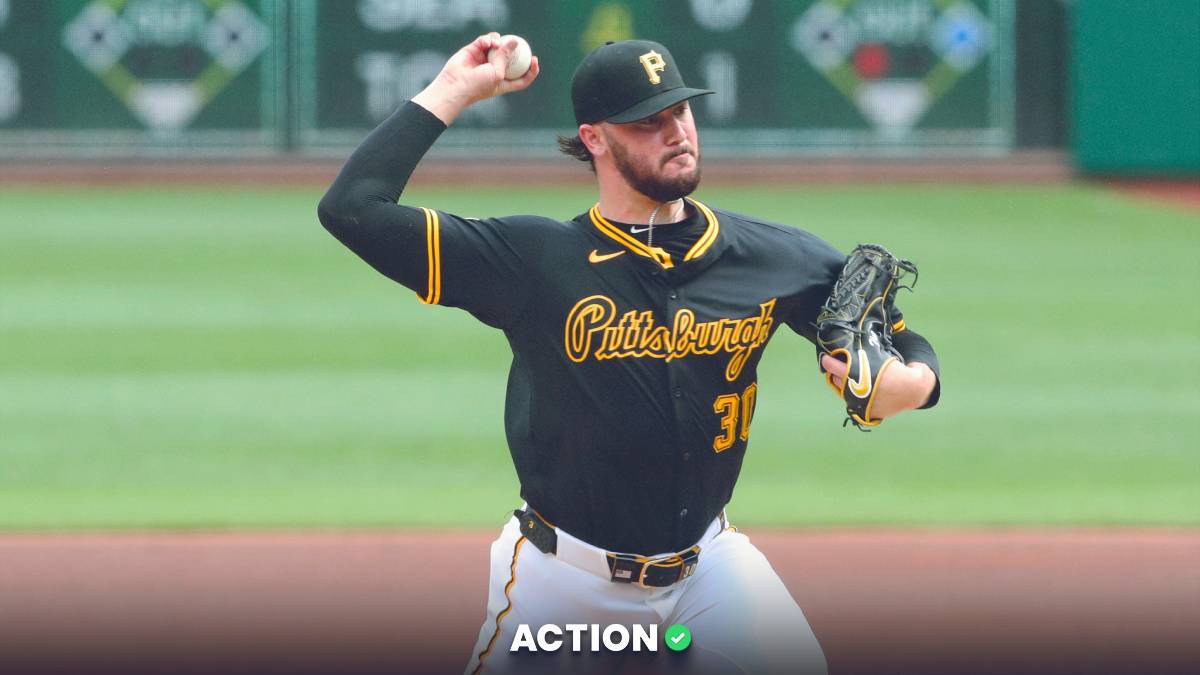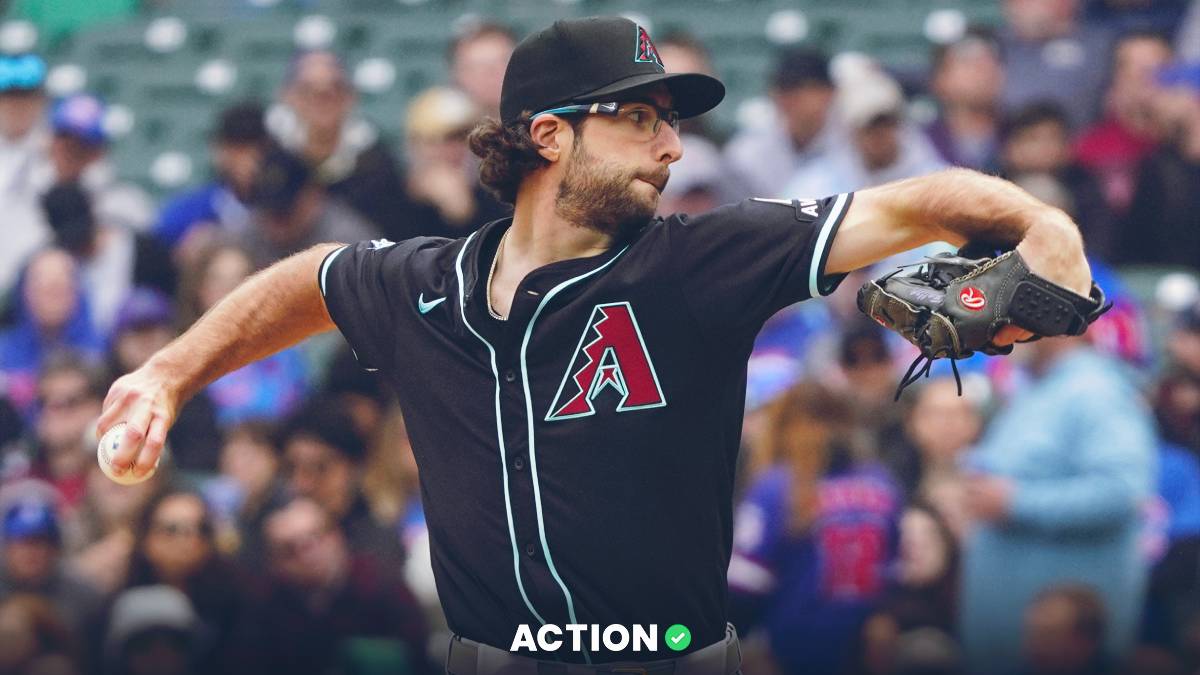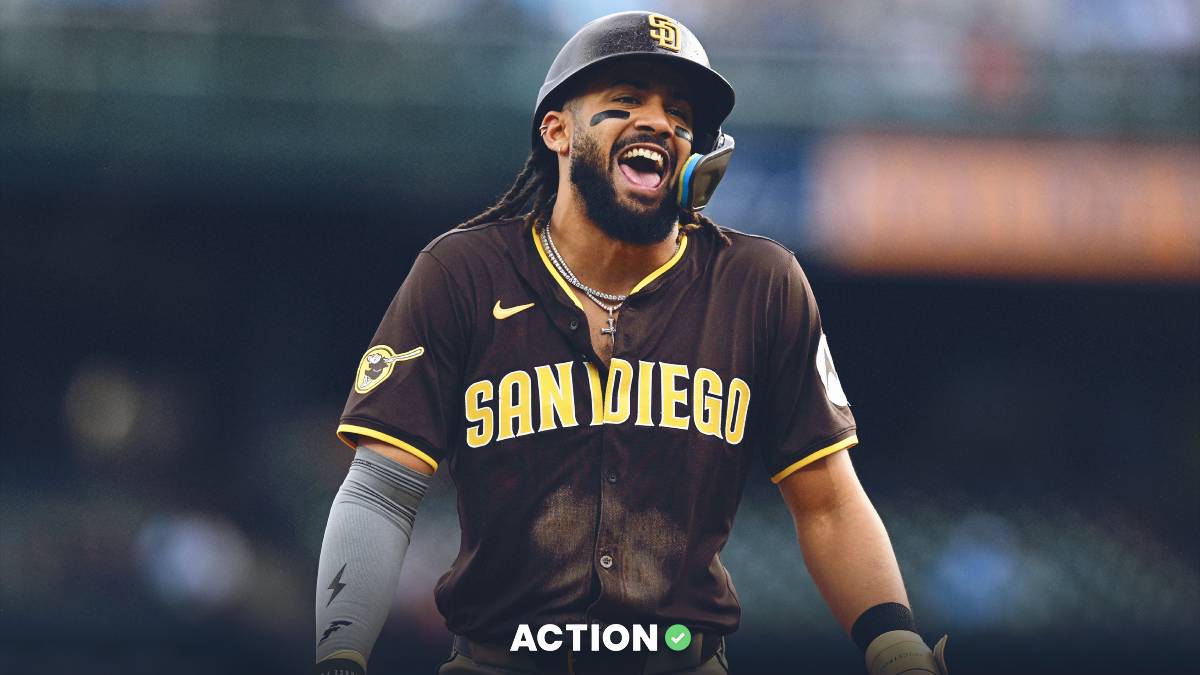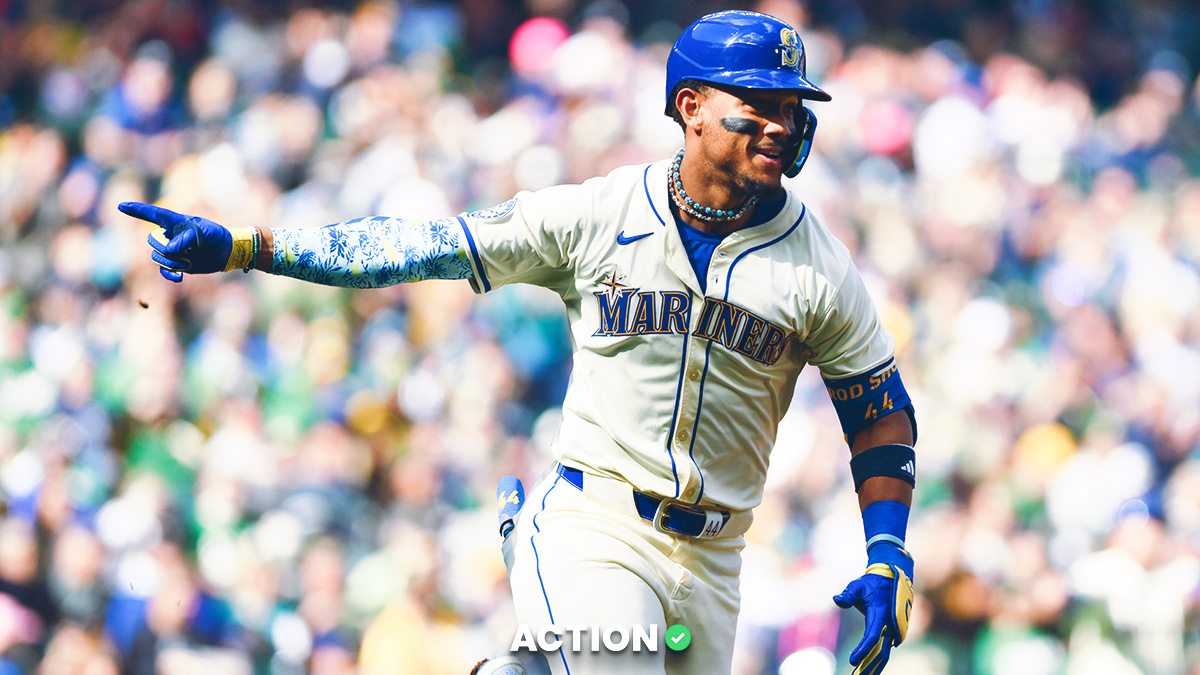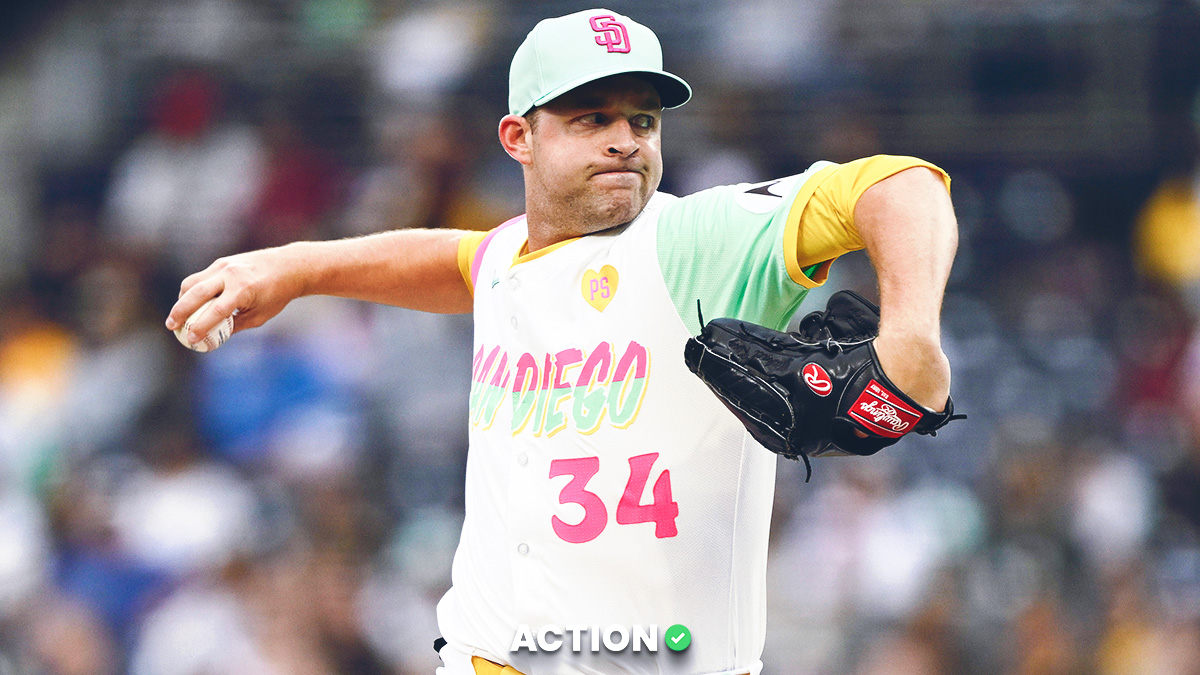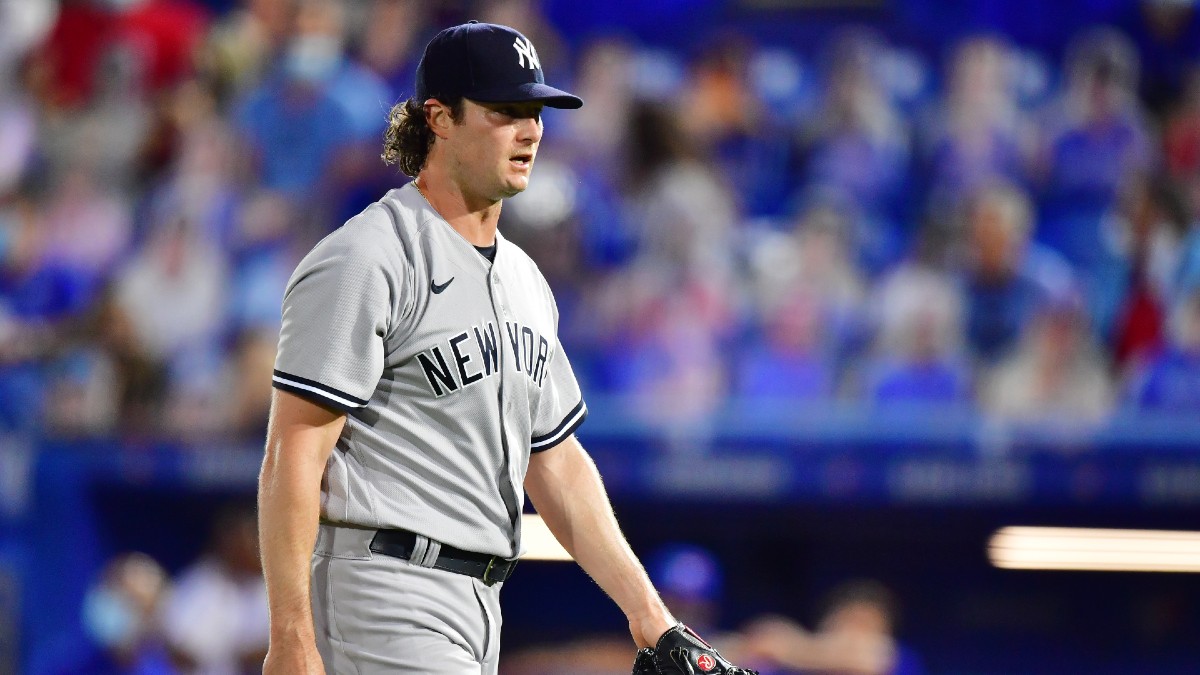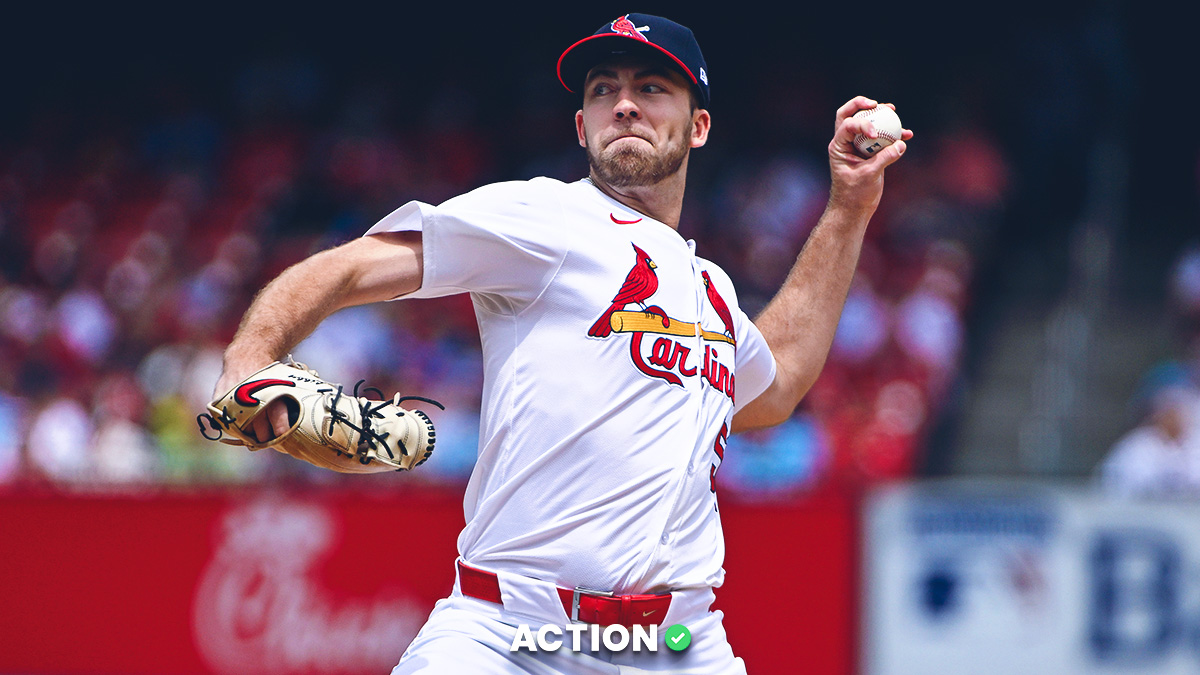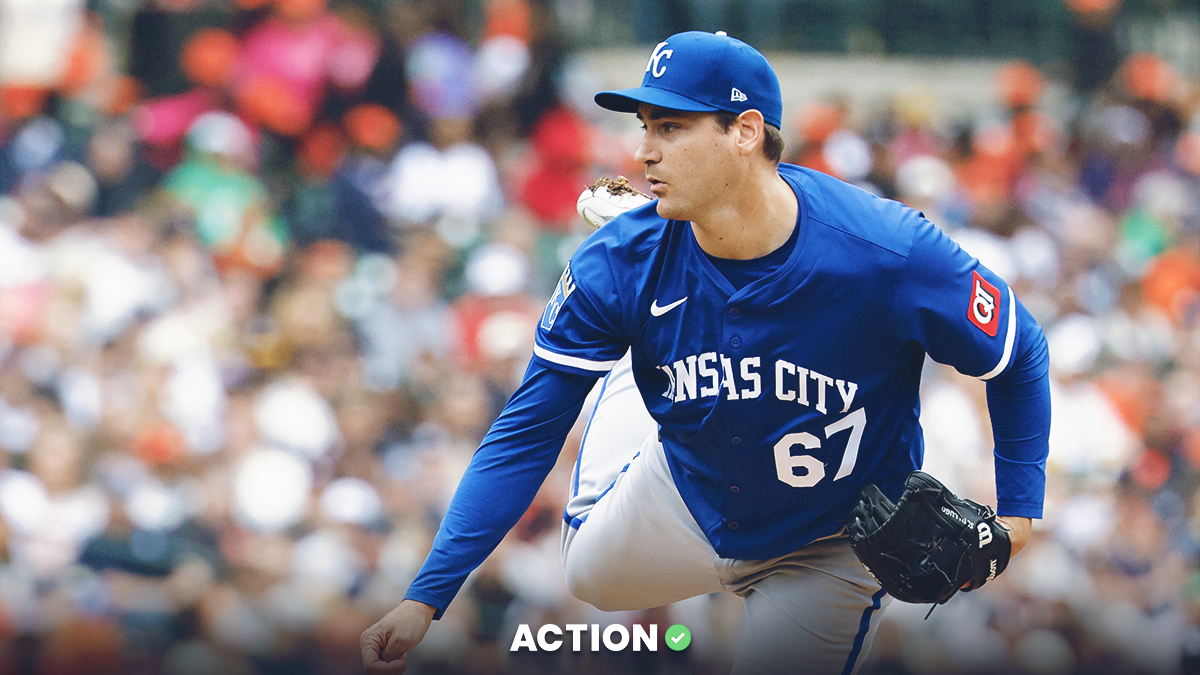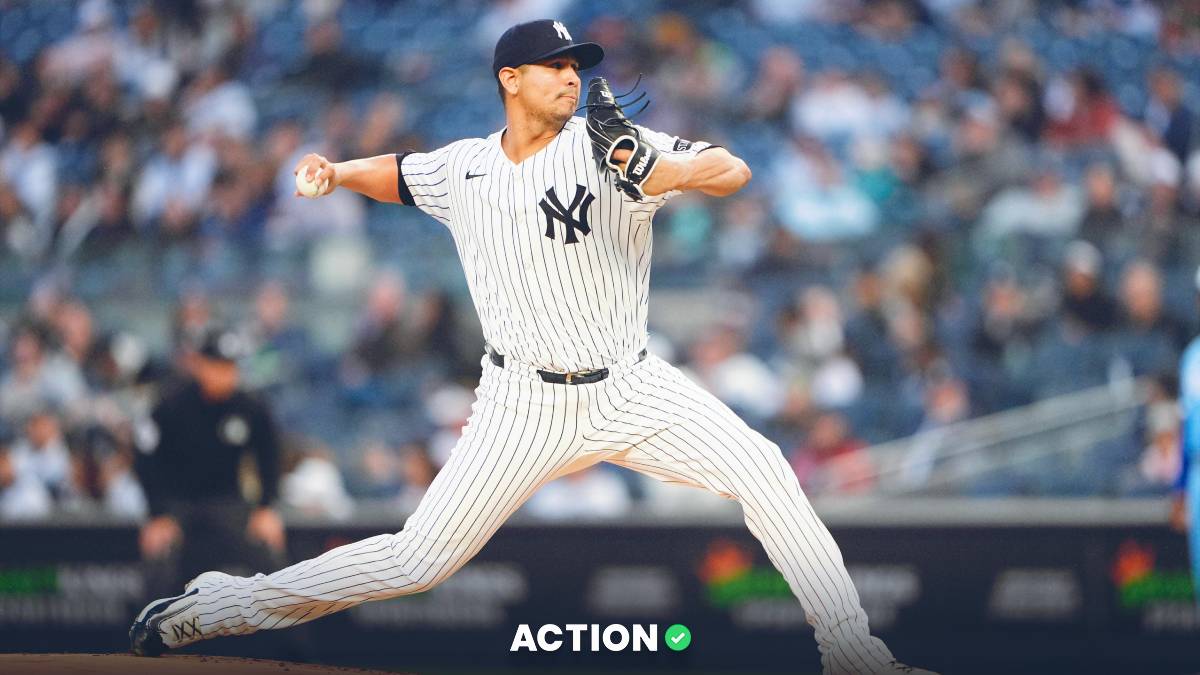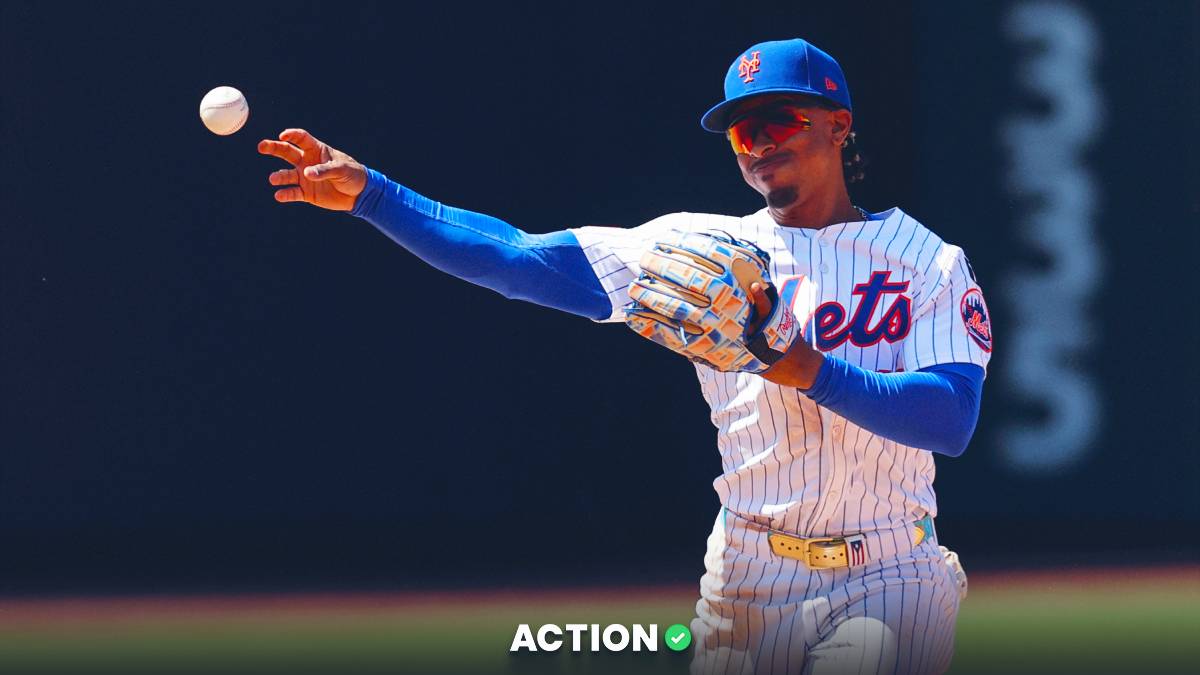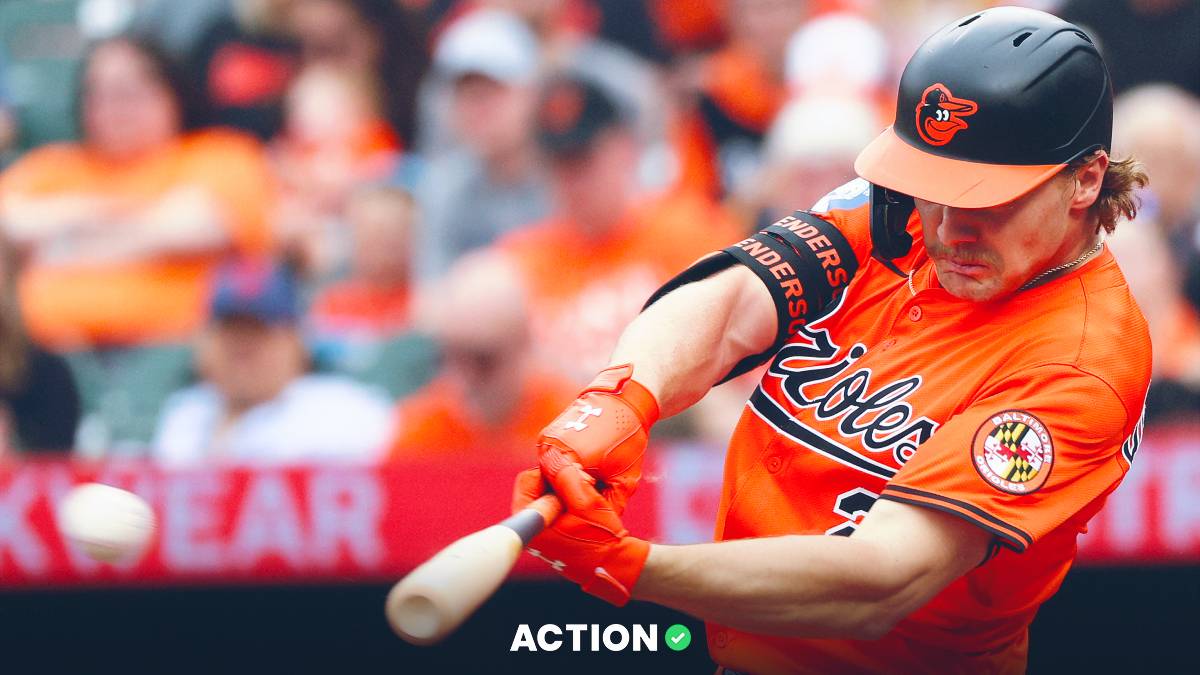Rays vs. Astros Game 1 Betting Picks, Predictions & Odds
Probable starters: Tyler Glasnow (6-1, 1.78 ERA) vs. Justin Verlander (21-6, 2.58 ERA)
- Rays odds: +188
- Astros odds: -210
- Over/Under: 7
- First pitch: 2:05 p.m. ET on FS1
Odds as of Thursday evening. Check out PointsBet, where Action Network users get an exclusive 200% deposit match (deposit $50, bet with $150).
The Astros are a substantial favorite to win the 2019 World Series. Listed at +200 in the futures market, oddsmakers give Houston a one-in-three chance of capturing their second championship in three seasons.
But the Tampa Bay Rays aren't afraid of anyone; playing in a division where they face the Red Sox and Yankees a combined 38 times per season.
After defeating the Oakland Athletics in the AL Wild Card Game, the Rays have a chance to shock the baseball world; and upset an Astros team that has at least three and upwards of five or six future Hall-of-Fame players on their roster.
Tampa Bay has elite pitching to play tight games with the Astros, and they won the season series 4-3; despite a 40-27 deficit in the run differential.
Can they win three out of their next five meetings, and propel past this Astros roster that is fully loaded for another World Series run?
The Starters
What Tyler Glasnow has done in 2019, and since joining the Rays at the 2018 trade deadline, is nothing short of impressive.
He ranks in the top 2% of every expected statcast metric while throwing harder (97 mph average fastball) than all but three starters (Noah Syndergaard, Nathan Eovaldi, Gerrit Cole).
A forearm issue sidelined Glasnow from May through early September, but he has looked fantastic over four September starts (12.1 innings, five walks, 21 strikeouts) while ramping up his pitch count from 41 to 66; last pitching 4.1 innings against the Blue Jays on Sept. 27.
The real question is how many pitches the Rays will be willing to let him throw on Friday if he's cruising early. Glasnow's velocity and stuff have looked every bit as good in September, as it did in April, since his return.
Tyler Glasnow, 98mph Fastball and 85mph Curveball, Overlay.
Seems fair. pic.twitter.com/1tYppEbUZF
— Rob Friedman (@PitchingNinja) September 28, 2019
The above four-seam fastball/curveball combination is generally what you get from Glasnow. His usage rate on those two pitches this season is 96.4% – going to the curveball just a hair under 30% of the time.
He hasn't thrown his changeup since May, and he stopped throwing his sinker in 2017 — when he was a talented farmhand with significant control issues for the Pirates.
He faced the Astros on March 30, defeating Collin McHugh 3-1; while allowing six hits and a walk over five innings, striking out four.
Justin Verlander defeated the Rays in both of his starts against them this year – on March 28 and again on August 27. He allowed one run over 12.1 combined innings; allowing just seven hits while recording 13 strikeouts.
Verlander has not won a Cy Young Award since 2011 when he also won the AL MVP, but he has had a dominant run with Houston for more than two seasons since joining the eventual 2017 champions at the August waiver trade deadline.
In 73 regular season starts with the Astros, he has compiled a 42-15 record with a 2.45 ERA (3.01 FIP, 3.09 xFIP) with 633 strikeouts against just 84 walks in 417 innings.
That's good for a strikeout-to-walk ratio of more than 7.5 – first amongst all starters by a substantial margin; as Chris Sale and Carlos Carrasco each rank second with a rate of 6.3.
His FIP and xFIP would be better, but for a home run problem, which Verlander began to develop in 2016. And it has only gotten worse this season with the new baseball that the league is using:
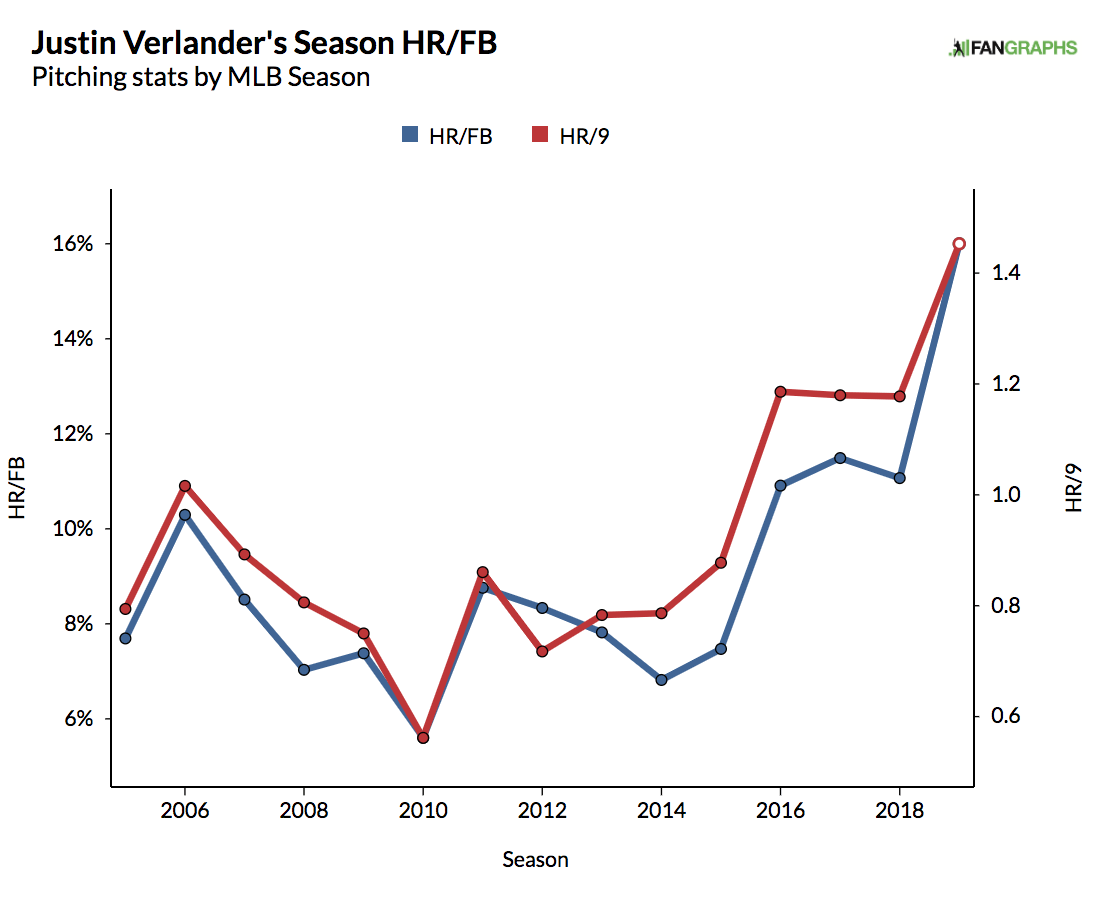
It's a testament to Verlander's quality to say that he has developed a problem, only to mean that he has merely regressed towards league average in a categorical skill.
He used to be elite at home run prevention and now he's just average. Verlander has a career 38% ground-ball rate – he was never built to altogether avoid the longball. And that's fine because he's elite at basically everything else.
Primarily a power fastball-slider pitcher, all four of Verlander's offerings (including the changeup and curveball) ranked above average this season – the first time he's achieved that since 2012.
By pitch value, Verlander and Scherzer's sliders were the best amongst starting pitchers this season:
Justin Verlander, Disgusting 90mph Slider. 🤮 pic.twitter.com/tzAtSaybJE
— Rob Friedman (@PitchingNinja) April 14, 2019
Verlander also passed a number of milestones in 2019, recording his first 300 strikeout season, and becoming the 18th pitcher to record more than 3,000 career strikeouts.
The Bullpens
On the season, the Astros bullpen ranks 11th in FIP, 1st in xFIP, and 1st in K-BB%. By the same metrics, the Rays rank 1st, 3rd, and 2nd.
Both teams have a deep group of elite arms, and runs are going to be extremely hard to come by in this series.
The Rays used both Diego Castillo (33 pitches) and Nick Anderson (22 pitches) for extended stretches in the Wild Card game, and Kevin Cash would probably only use them if necessary on Friday.
Trevor Richards was left off of the Rays Wild Card roster (which only included 10 pitchers), but I would expect him to be included on their ALDS roster.
Acquired from the Marlins at the trade deadline, Richards is a changeup specialist (38% usage), whom the Rays have twice used as a bridge between Glasnow and their late-inning relievers in September.
The Rays bullpen weakness is their lack of a dominant left-handed reliever, so they might look to assign some plate appearances for Astros lefties Michael Brantley and Yordan Alvarez to Richards' off-speed stuff:
Trevor Richards, Disgusting 84mph Changeup…and likely Sword of the Week. ⚔️👕
H/T @mitch_king3 and @spencermyers21pic.twitter.com/Mq8NR9Hbwu
— Rob Friedman (@PitchingNinja) August 18, 2019
With Glasnow, Snell, and Morton, the Rays can go toe-to-toe with the Astros early in games, but they're going to need some quality innings from their middle relief, and the Midas touch from Kevin Cash to make it through this Astros lineup for five games.
Projected Lineups
Data per FantasyLabs
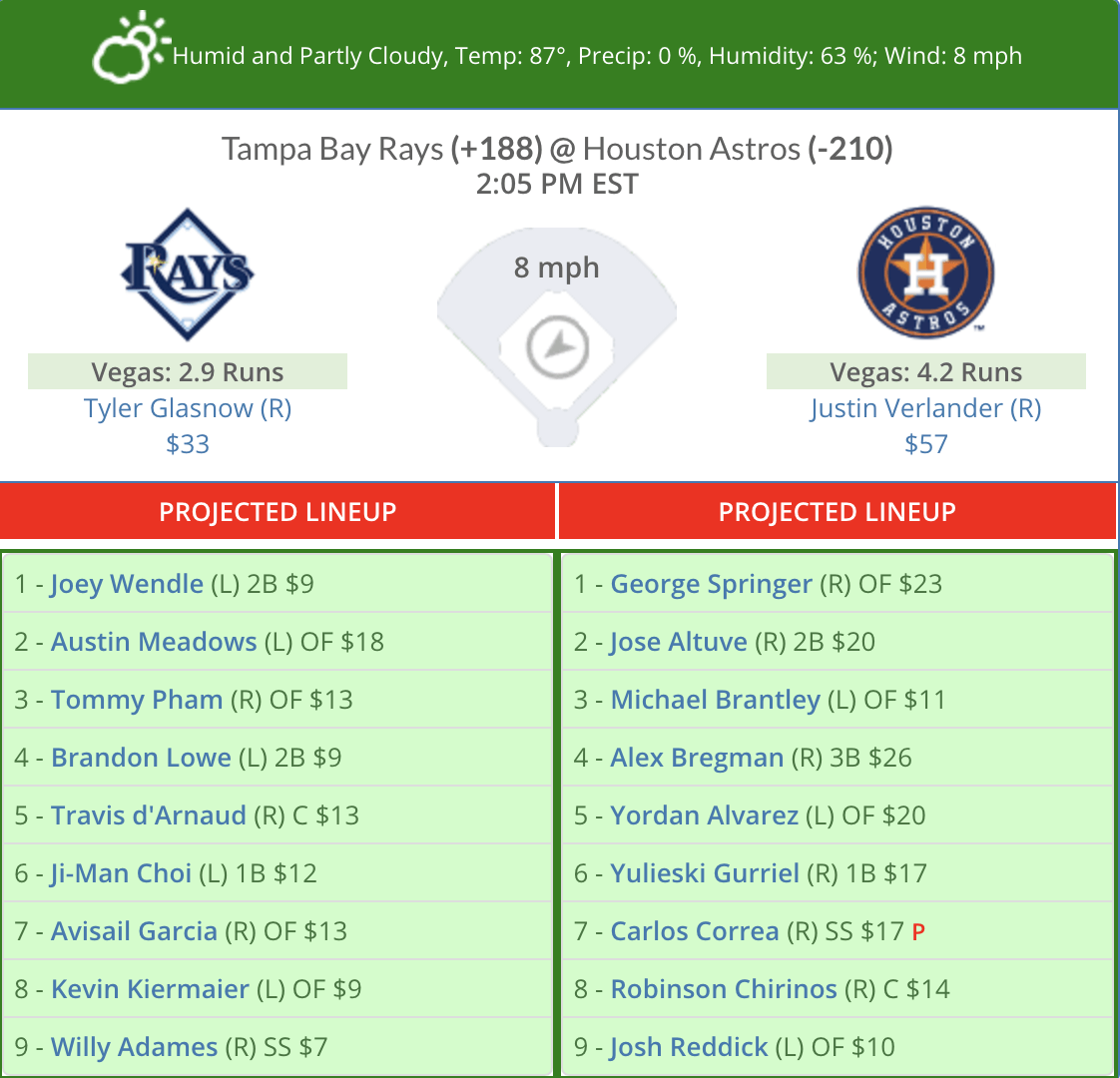
Weather Report
Data per Sports Insights

Trends to Know
The Under has been extremely profitable in Justin Verlander's starts over the past two seasons, going 46-26-3 (63.9%) netting a consistent $100 bettor $1,786 (23.8% ROI).
Most of that under profit has come at home, where Verlander is 26-14-4 (65%, +$1,144) over the same period.
Minute Maid Park is the most profitable park in baseball to bet the under, with a 53.3% lean dating back to 2005; netting a $100 bettor $5,092.
In the postseason, however, the under is just 10-12-1 in Astros home games.
Model Projected Odds
Favorite Bet
I projected the Astros as a -190 favorite in this game, and I set the total at 6.3 runs. Therefore, I don't see any value on either side of the moneyline, but I do see value on the under 7 at even money, in what projects as a pitchers' duel.
If it's a combined question of vig and total, bet Under 7 (+100) rather than under 7.5 (-125).
I project the Rays as a +214 underdog for the best-of-5 series, an implied win probability of 31.8%, but was able to play the Rays at +250 to win the series. That's an implied 28.6% win probability and a gap of more than 3% in expected value from my projection.
I prefer the Rays series moneyline as opposed to their Game 1 moneyline, but I did take a half-unit taste on the Game spread (+1.5) in what projects as a low scoring affair.
If you asked me to preference those wagers, I would prefer the Under, followed by the series moneyline, and then the game spread. And I wagered a half unit on each.


